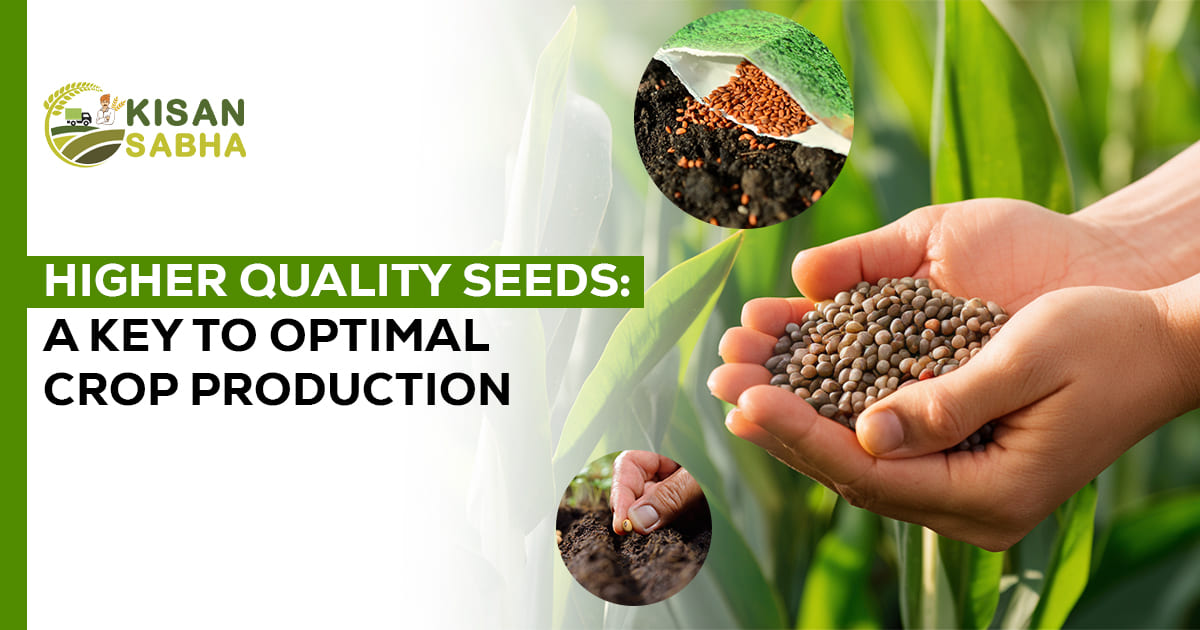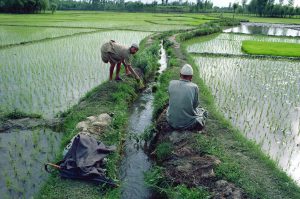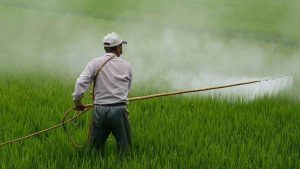Agriculture is the backbone of human civilization, providing food, fiber, and various raw materials essential for our survival. As the global population continues to grow, the demand for agricultural products increases. To meet this rising demand, it is imperative to optimize crop production. One of the most effective ways to boost crop yields and overall agricultural productivity is by using higher-quality seeds.
Seeds carry the fundamental genetic information required to generate new plant life. The quality of seeds directly influences crop growth, health, and productivity. In this article, we will delve into the importance of using higher-quality seeds and their role in crop production.
Importance of Higher Quality Seeds
Improved Germination and Vigor:
Higher-quality seeds possess superior germination and vigor.
Germination involves seed development into a new plant; vigor denotes the emerging seedling’s overall health and strength. With better germination and vigor, a greater percentage of seeds sown will sprout into healthy plants. This directly translates into higher crop establishment rates, reducing the need for reseeding and ensuring maximum land utilization.
Enhanced Disease Resistance:
In the battle against crop diseases, higher-quality seeds have a distinct advantage. Plant breeders and seed producers carefully select and develop seeds with improved disease-resistance traits. These seeds carry genetic attributes that can withstand various diseases, pests, and pathogens, reducing the need for excessive use of chemical pesticides. Enhanced disease resistance not only ensures healthier crops but also reduces the environmental impact of agriculture.
Increased Tolerance to Abiotic Stress:
Climate change has brought about erratic weather patterns and increased occurrences of abiotic stress factors, such as drought, extreme temperatures, and salinity. Plant breeders and geneticists often select and breed higher-quality seeds for their ability to tolerate various stress conditions. These stress-tolerant seeds enable farmers to cultivate crops in regions prone to adverse environmental conditions, expanding the geographical range for crop production and safeguarding against climate-related challenges.
Superior Crop Uniformity:
Subsequently, high-quality seeds result in more uniform crop stands. In addition, uniformity in plant growth is essential for the efficient use of resources, including water, nutrients, and sunlight. Moreover, uniform crops mature more evenly, making harvesting and crop management easier. As a result, this uniformity enhances agricultural efficiency, reduces wastage, and streamlines post-harvest processes.
Increased Nutrient Use Efficiency:
Higher quality seeds can exhibit better nutrient use efficiency. Nutrient use efficiency refers to a plant’s ability to absorb and utilize nutrients effectively from the soil. Seeds that have been bred for optimal nutrient uptake and utilization can thrive with minimal fertilizer input. This not only benefits farmers by reducing fertilizer costs but also mitigates the risk of nutrient runoff, which can have adverse effects on the environment.
Adaptability to Different Agroclimatic Zones:
Notably, a key challenge in agriculture is selecting crops that are well-suited to specific agroclimatic zones. Consequently, higher-quality seeds are often developed to be adaptable to various growing conditions. As a result, by using such seeds, farmers can choose from a broader range of crop options and diversify their production, increasing resilience against climate variability and market fluctuations.
Improved Crop Traits:
Modern seed technologies, including genetic modification and marker-assisted breeding, allow for the development of seeds with specific desirable traits. These traits may include improved taste, nutritional content, shelf life, and other consumer preferences. By using seeds with enhanced traits, farmers can grow crops that are not only high-yielding but also meet consumer demands, opening up new market opportunities.
Conservation of Genetic Diversity:
Using higher-quality seeds also plays a significant role in conserving genetic diversity in crops. As the world’s agricultural landscape becomes increasingly dominated by a few high-yielding crop varieties, there is a risk of losing valuable genetic resources. Quality seed producers and breeders often prioritize the conservation and utilization of diverse genetic materials. This helps safeguard against crop diseases, pests, and changing environmental conditions that may threaten specific varieties.
Support for Sustainable Agriculture:
Additionally, sustainable agriculture aims to meet the needs of the present generation without compromising the ability of future generations to meet their own needs. Moreover, higher-quality seeds are an essential component of sustainable agriculture. As a result, by promoting improved crop productivity, reducing environmental impacts, and supporting efficient resource use, these seeds contribute to a more sustainable and resilient agricultural system.
Research and Innovation:
Furthermore, the development of higher-quality seeds is an ongoing process driven by continuous research and innovation. In addition, plant breeders, geneticists, and agronomists work tirelessly to identify new traits, improve existing ones, and adapt crops to emerging challenges. Consequently, their efforts result in seeds that are better suited to the ever-changing agricultural landscape, ensuring the continuous advancement of crop production.
Conclusion:
As the world’s population continues to grow, the importance of optimizing crop production cannot be overstated. Higher-quality seeds are a pivotal component in achieving this objective. Through improved germination and vigor, enhanced disease resistance, and tolerance to abiotic stress, higher-quality seeds enable farmers to produce healthier crops with minimal environmental impact. Their adaptability to different agroclimatic zones, improved crop traits, and support for sustainable agriculture make them indispensable tools in the pursuit of food security and agricultural sustainability. By investing in research, innovation, and the use of higher-quality seeds, we can pave the way for a more resilient and productive agricultural future.



